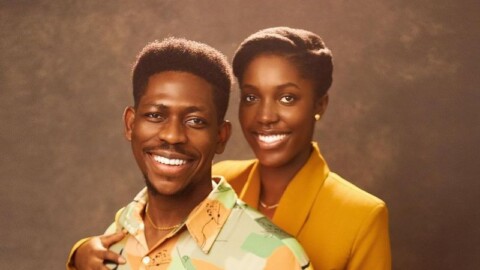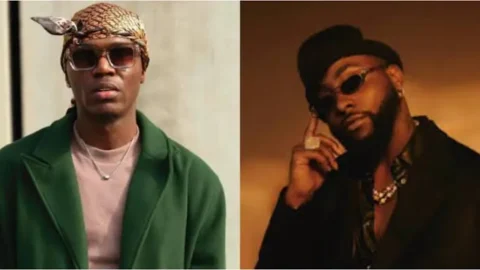Jennifer Lopez is once again facing legal trouble over her social media activity — this time, for posting photographs of herself without securing the necessary copyright permissions.
The pop star and actress is being sued by photographer Edwin Blanco and the paparazzi agency Backgrid, who claim Lopez used their images without authorization after she attended a high-profile Hollywood party earlier this year.
The photographs in question show Lopez dressed in a striking white gown and faux fur coat, arriving at the Amazon MGM Studios and Vanity Fair pre-Golden Globes event held at the Chateau Marmont in Los Angeles.
According to the legal complaints filed, Lopez shared these photos on both Instagram and X (formerly Twitter), where they quickly gained traction and were reposted widely across fashion and fan accounts.
The core of the legal argument is that the two photos are copyrighted material owned exclusively by Blanco and Backgrid, and that Lopez did not obtain permission to use them.
Both parties are seeking up to $150,000 in damages per photo, citing infringement of their intellectual property rights. “Ms Lopez’s unauthorised use of the images is commercial in nature, intended for the purpose of self-promotion,” the lawsuits allege.
The complaints argue that the images were deliberately shared to increase engagement on Lopez’s platforms, drive traffic to her posts, and bolster her brand value through increased visibility.
What adds weight to the claim is that Lopez’s posts did more than simply document a public appearance — they were, the plaintiffs argue, crafted to subtly endorse fashion designers and brands.
“For example, Ms Lopez used the images to spotlight the designer of her clothing and jewellery,” the lawsuits continue. “She leveraged the publicity from the event to promote her fashion affiliations and brand partnerships.”
In other words, what may have appeared to be a simple glamorous post was, from a legal standpoint, a commercial endeavor — and that, the plaintiffs argue, makes the unauthorized use of the photos a more serious offense.
Lopez’s social media caption, “GG Weekend Glamour,” further suggested a curated promotional moment tied to her celebrity persona and business ventures.
The posts, showing her posing outside the event venue, were widely shared by fan pages, stylists, and fashion-focused accounts, amplifying their commercial reach.
For Blanco and Backgrid, this viral effect only underscores the damages, as it placed their copyrighted work into extensive circulation without compensation.
“This is about more than just a couple of Instagram posts,” said a representative familiar with the agency’s policies. “It’s about the rights of creators to control how their work is used — even when the subject is a global superstar.”
The lawsuits also reference efforts made to resolve the issue privately.
According to the filings, Backgrid and Blanco did contact Lopez’s representatives after she posted the images, and the two sides allegedly agreed on terms for usage and compensation.
However, the legal documents claim that Lopez has yet to sign the agreement or fulfill the payment terms. This breakdown in negotiations prompted the photographer and agency to move forward with legal action.
“It’s unfortunate, because there was a clear path to resolving this amicably,” said a legal expert familiar with entertainment copyright law. “But when agreements are delayed or ignored, litigation becomes the only remaining option.”
This isn’t the first time Lopez has been at the center of a copyright infringement case over social media posts.
In both 2019 and 2020, she was sued for sharing photos of herself taken by professional photographers without permission.
While many celebrities assume they can freely share images in which they appear, U.S. copyright law clearly states otherwise: unless the subject of a photograph has acquired the rights from the copyright holder — typically the photographer or the agency they work for — they do not have legal control over its use.
“It’s a common misconception,” said one media attorney. “Just because someone is in the photo doesn’t mean they own it.”
Jennifer Lopez is far from alone in facing these kinds of legal challenges. Other celebrities, including Dua Lipa, Gigi Hadid, and Khloe Kardashian, have been hit with similar lawsuits in recent years, all stemming from social media posts featuring paparazzi images.
These cases have sparked broader conversations around the tension between celebrity culture, digital media, and copyright enforcement.
Some advocates have called for clearer rules that balance the rights of photographers with the realities of the social media age, where public figures use platforms as extensions of their personal brands.
As of now, Lopez’s representatives have not issued a public response to the lawsuit. The BBC has reportedly reached out for comment, but no reply has been received.
With the lawsuits now heading into formal proceedings, all eyes will be on whether this case ends in a quiet settlement or sets a new precedent in the increasingly litigious world of social media image rights.
For photographers and agencies, the message is clear: copyright still matters, even in a world of viral posts and global celebrity.
And for stars like Lopez, the cost of a single Instagram post may be far higher than a few likes and shares.








